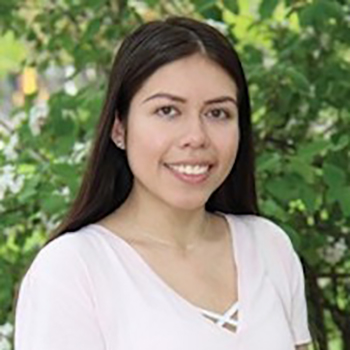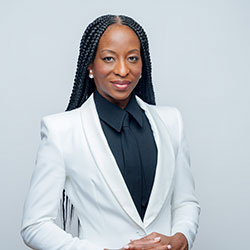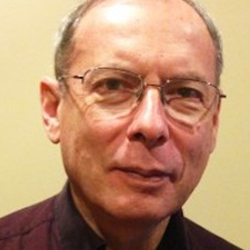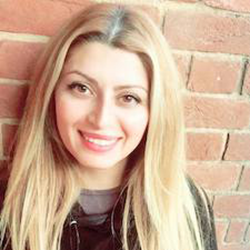Nimo Bokore
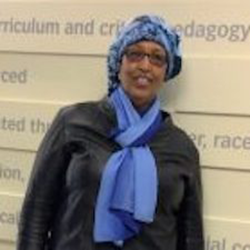
Tenure Track Faculty, Carleton University
Graduate Program in Social Work
Why did you decide to do your PhD at York University?
I am one of the resettled refugees from Africa. After facing resettlement barriers based on race, religion and gender, I began to think about how systemic barriers and the functions of social control, oppression, and social structures contribute to the dislocation of oppressed and disenfranchised populations like me. After facing the devaluation of my previous knowledge and understanding the value of education for economic integration, I enrolled and graduated from various programs at colleges and universities including Durham College, George Brown College, Ryerson University, University of Toronto, finally coming to York for the completion of my PhD. I chose York for its critical approach to the field of social work and its emphasis on human rights, social justice and anti-oppression. It also hosts the Center for Refugee Studies, which is an area of my research. This choice defined my career as I continue to study refugees, resettlement issues, intervention and integration (social and economic).
York also encourages graduate students to explore and work on projects contributing to the promotion of social equality and the pursuit of social transformation.
It was when I was doing my PhD, I realized I needed to know more about the process of trauma, memory and neurobiological based intervention. The encouragement of the school for their students to explore new boundaries in knowledge creation, and the support of my supervisors Dr. Nick Mule (Social Work) and Dr. Lauren Sergio (Neuroscience Department) at York allowed me to complete two graduate studies at the same time.
What were some of your favourite moments when you were a student at York?
Teaching undergraduate students in the Social Work Department. I loved their enthusiasm when they were learning about international social work, poverty and policy. My other favorite moment was working as a research assistant for Dr. Susan McGrath on a project designed to synthesize social education in Rwanda. During that project which lasted over two years, I was able to work with colleagues in Rwanda who are doing research and writing publications.
What were some of the challenges?
I don’t know if I can call it a challenge, but I lost my vision while studying at York. However, with the support of the Student Accessibility Services, I was able to continue working while recovering from multiple eye surgeries.
What was the focus of your dissertation?
The focus of my dissertation was on Somali-Canadian Women who are dealing with the impacts of historical trauma and the challenges of facing resettlement barriers based on race, religion, geopolitical location and status of their migration.
You are currently teaching at Carleton. What do you love about Carleton and what have been some of the highlights?
Yes, I was hired as a tenure track faculty. Firstly, the School of Social Work at Carleton follows similar teaching philosophies as York by encouraging students to deconstruct dominant ideologies to address power inequalities inherent in our Canadian society.
Carleton also has a strong clinical base, where graduate students in social work are encouraged to learn and apply the latest scientifically proven knowledge for mental health and health intervention. With my background in mental health and my interest in trauma research and intervention, this is the perfect school for me.
The Carleton School of Social Work is a structural school. It hosts the only Institute of African Studies in Canada and the Migration and Diaspora Studies Initiative, which focuses on the social, economic, cultural and political implications of the movement and transnational settlement of people. I am cross appointed in both faculties, and as a result I was able to organize the first ever Somali Studies colloquium in Canada. There were over 100 registered participants, and 30 presenters, presenting their work in England, Netherlands, South Africa, Kenya and at various universities in Canada.
Carleton has a large group of scholars studying forced migration, refugee and resettlement policy. This year, I had the chance to be the one of the core organizers of the 11th Canadian Association for Forced Migration Studies (CARFMS2018), and co-investigator for a Social Sciences and Humanities Research Council of Canada Partnership Grant for a project titled: Civil Society and the Global Refugee Regime: Understanding and Enhancing Impact through the Implementation of Global Refugee Policy.
I was part of this large grant that received $2.5 million from the Social Sciences and Humanities Research Council, as well as additional funds from other partners. It allowed me to learn from scholars I admire, such Dr. James Millner. He is the principal investigator of this project and is part of the many opportunities I have received by being at Carleton.
By coming to Carleton, I also got other opportunities to do funded projects such as Access to Higher Education for Black-Canadian Youth. Funding was received from the Ministry of Children and Youth Services and this two-city project (Ottawa and Toronto) is now complete with informative results that will be published soon.
Carleton also collaborated with both York University and Ryerson University, and hosted the 11th Canadian Association for Forced Migration Studies (CARFMS2018), and I was one of the core organizers of this event.
I am also the chair of a committee promoting social work education in Africa establishing a collaborative relationship with Hargeisa University in Somalia.
How has studying at York supported your current teaching and research?
What I learned at York about research, teaching pedagogics, helped me with the various activities I have been involved in the past two years.
What has been some of the best advice you have provided to students about bridging practice and theory?
I give them simple, non-academic advice: theory is a guide; you need to reflect on it to see if it is the right theory for you. You need to understand it through reading and practice. You will then know which theory is the right one for your research, practice, and the population you are working with.
What have you learned from the students you taught?
I deal with issues all racialized professors deal with in academic settings. What I learned is how race and racialization functions in the relationship between students and professors like me.
What advice would you give to new social worker graduates?
Life after academia is what you make it.
What does being a York University social work alumna mean to you?
For me, being a York alumna means I gained knowledge from great scholars, met life long friends and community mentors who support my critical perspective in social work practice. A perspective which is important to me as a Black, African born, Muslim woman and part of the resettled refugees in Canada. I arrived in Canada with four children and nothing else. I faced all the systemic barriers that newcomers are confronted with.
Looking at these issues from a critical perspective not only helped navigate my own challenges but has allowed me to be able to engage in critical self-reflection when I am learning, teaching or doing advocacy work.
Browse more Alumni profiles
Information Technology
Bachelor of Arts (BA)
Chief of Staff – Office of the CEO, Canadian Tire Corporation

